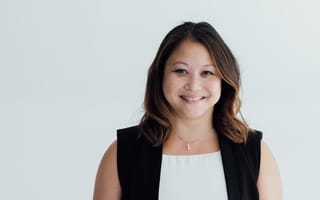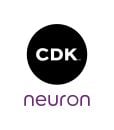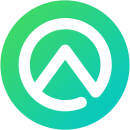Impostor syndrome is real. Mansplaining is real. Regularly second-guessing yourself in the workplace is real.
And it’s typically women who find themselves on the receiving ends of these situations — especially in the male-dominated tech industry.
Fortunately, we have women rising above to remind us to trust our instincts, our skills and our value. We’ll let them take it from here.

A physics teacher initially, Calm Mattier turned to software engineering after discovering her affinity for Minecraft mods. Today she works for Square Root. Her advice? Never undervalue yourself.
How did you get into engineering?
I attended university to get my degree focusing in theoretical physics. While in school, I played a lot of Minecraft with friends; I have always been a big gamer. As part of the Minecraft community, I got into modding the game, which involved coding plugins to add new functionality. I was always trying to one-up myself with more and more complex plugins. I ended up teaching physics for a few years after graduating, but ultimately ended up pivoting and going into programming so I could have a more fun and challenging career.
Always push yourself and take opportunities, even if you think you don’t deserve them.”
What is the biggest challenge you’ve faced in your career, and how have you worked to overcome it?
My hardest challenge was initially getting into computer engineering. Since I had started a career in academics and didn’t really have any computer engineering experience outside of some coding I had done for fun in my spare time, I thought I was crazy, wasn’t going to be able to get a job, and would be forced to get another degree. I took my best plugin code and submitted it with my resume to several positions and got called back on one. When given the chance to prove myself in a whiteboard interview, I killed it and got the job.
Any advice for other women pursuing a career in engineering?
Don’t undersell yourself and your abilities. A lot of women in tech and engineering, myself included, struggle with impostor syndrome, where you doubt your accomplishments and abilities and can feel almost like a fraud at times. This can lead to undervaluing yourself and not pushing for career advancements and opportunities. It can really hinder your career, but there are ways around this: reflect on all the awesome stuff you have done, talk with friends and family when you are doubting yourself, and always push yourself and take opportunities, even if you think you don’t deserve them.

While it’s important to respect leadership, it’s just as important to stick to your convictions when you know you’re right. This was something Lily Wilhelms learned throughout her career. Adia’s U.S. head of product shared how a change in mentality helped her shift away from second-guessing herself.
How did you get into product management?
I came up as VP of operations in an operationally heavy tech startup where I spent most of my time using technical knowledge to deploy real-time, firefighting solutions for internal users and customers. By the time I was promoted to COO and my responsibilities expanded to include securing revenue month to month, the link between operational excellence and strong, steady growth was clearly a proactive product. Moving to Austin, I was presented an opportunity to become part of a proactive solution as head of product for the U.S. for a startup crafting a marketplace for the gig economy. I like building things that anticipate customer needs while allowing ops to exceed expectations. Product is a pretty incredible Rubik’s Cube that I don’t get tired of solving.
Develop opinions, say them out loud and go get ’em, tiger.”
What is the biggest challenge you’ve faced in your career, and how have you worked to overcome it?
I needed to come to terms with the fact that I have a very strong deference to the experience and niche knowledge of other leaders. As it turned out, this was an obstacle that I didn’t realize I dealt with every day. If my findings, objections or opinions went against the grain, I would find myself getting asked to fact check, check again — and check again just to be sure — if my findings were valid. This is actually pretty common for women in the workforce, and I got sick of getting asked to do more work to get the same conclusion, so I stopped answering the redundant, “Are you really sure?” Instead, I started asking “Why are you so sure?”
Any advice for other women pursuing a career in product?
Be critical and vocal and insanely curious. Download every app that piques your interest, and think about why you dislike using one service over another to develop opinions about what products across the spectrum really nail it, and which ones miss the mark. Whatever area of product you’re interested in, having a strong sense for your gut check is essential and quintessentially you — something only you can bring to the table. Develop opinions, say them out loud and go get ’em, tiger.

Having grown up around engineering, Cassandra Shum earned her master’s in computer science before joining ThoughtWorks. She’s now been with the company for nine years and leads as technical director for North America. Shum highlights her experience as one of the first women leads on a large-scale project.
How did you get into engineering?
I was exposed to engineering at an early age, as my father was an aerospace engineer. In my career, I ended up going down the neurobiology research route and found that I liked the faster feedback cycle of software engineering. After my master’s in computer science, I was lucky enough to join ThoughtWorks, to be exposed to amazing software engineering practices that have enabled me to solve interesting problems for the last nine years.
Always find both a mentor and a peer to talk to and share experiences about being a woman in engineering with.”
What is the biggest challenge you’ve faced in your career, and how have you worked to overcome it?
The biggest challenge I had was on a project where we implemented an event-driven architecture with command-query responsibility segregation on a massive financial platform. This was one of the first times where I had to be a leader on many different levels while managing all the concerns that affect a platform: scalability, security, performance, etc. On top of all the that, I had to continue to lead the teams in a direction during a difficult implementation, keeping them engaged and excited about what we were building. I was one of the first women tech leads on that project, and it was great to have ThoughtWorks’ support my growth on this account, which has driven my career ever since.
Any advice for other women pursuing a career in engineering?
My biggest tip is always to find both a mentor and a peer to talk to and share experiences about being a woman in engineering with. I have found so much support from my mentors and colleagues who have faced similar challenges, and it has really helped me stay motivated and excited throughout my career.

At the suggestion of her mentor, Jamie Esker pursued a position in product management, a move outside of what she thought would be a long-term career in sales. Six years later, Esker leads as a senior manager at PureWrx, where she oversees the product management team to identify compatible solutions and build configured routing systems for telecom companies.
How did you get into product management?
I always intended for my career to be in sales. But after I survived a company layoff, my future mentor challenged me to take a hardware-focused product manager position. I was working for a tech distribution company at the time and had hundreds of sales representatives counting on me as the subject matter expert for my product line. I spent countless hours educating myself on the latest and most relevant technology so that I could provide answers and solutions quickly.
If you speak your mind, work hard, and are a team player, you will quickly earn respect.”
What is the biggest challenge you’ve faced in your career, and how have you worked to overcome it?
We were in the very early startup phase when I first started at PureWrx three and a half years ago. Because I was considered the subject matter expert, I wore several different hats and developed processes that we still use today. I had no experience in procurement, nor logistics, and was still familiarizing myself with networking fundamentals. Going through this experience forced me to learn all aspects of the business, which has allowed me to become one of the more senior members of my team as well as one of the most tenured.
Any advice for other women pursuing a career in product management?
Have confidence in yourself and acknowledge your strengths. I never thought I would have a technical career, but I did always excel in related subjects. Some women may be intimidated by this male-dominated field, but if you speak your mind, work hard, and are a team player, you will quickly earn respect.











